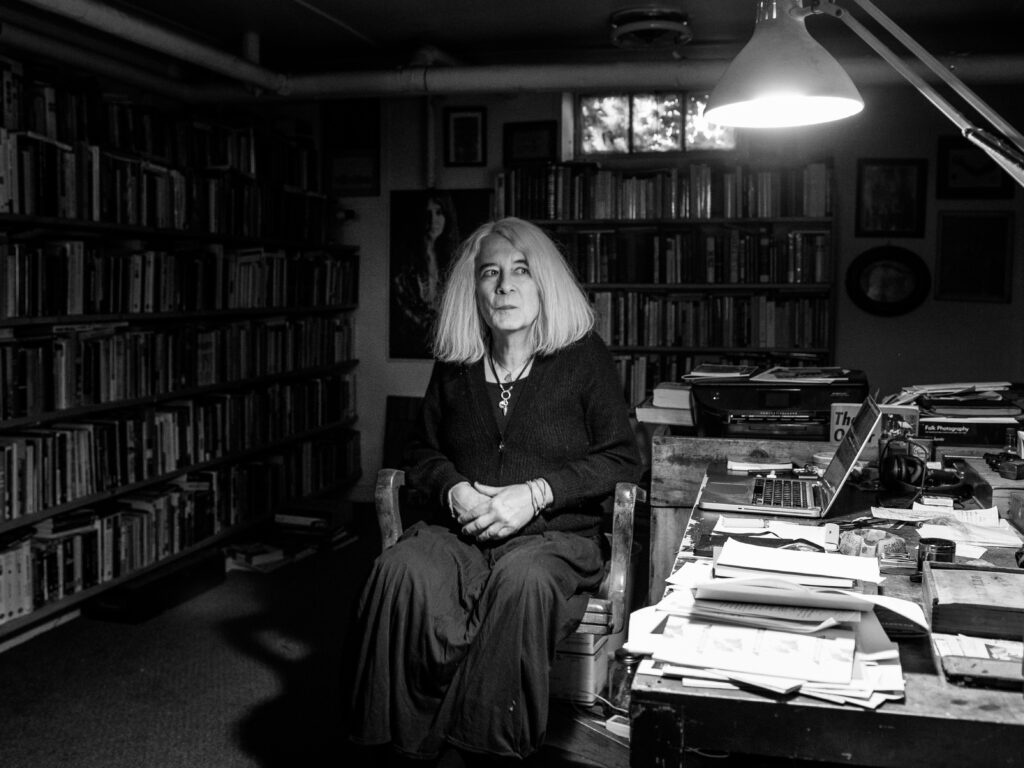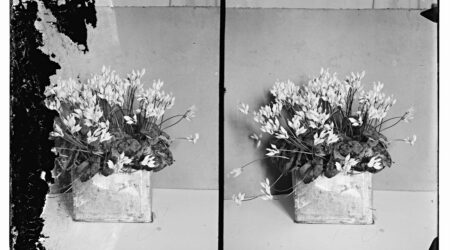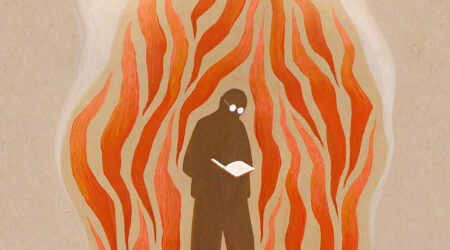The critic and writer Lucy Sante likes to describe her pre-transition self as her “pathetic ex-husband.”
The jibe is cute, but also sincere. “Luc was miserable,” Ms. Sante said, impishly “deadnaming” herself. “Before my transition I was cripplingly shy. Now I’m ready to talk to anyone.” She gestured around her well-worn home in Kingston, N.Y., with its slight air of 1950s kitsch (a ceramic kitten lampstand) and menace (1940s crime scene photos).
“I’ve had more people to the house in the past six months than I probably ever did,” she added.
For those who knew Ms. Sante before her transition, the new demeanor is striking. In a 2016 interview, a writer for The Paris Review described her as having a “hangdog expression,” a countenance often paired with an austere uniform of black shirt and jeans befitting the avid habitué of New York’s punk rock scene, and a writer acclaimed for chronicling New York’s underbelly in her best-known book “Low Life: Lures and Snares of Old New York.”
Ms. Sante traces her old shyness and hangdog-ness to her peculiar and isolated childhood as a Belgian immigrant transplanted to New Jersey, weighed down by the burden of her secret. “Social relations were always very, very fraught,” she said.
“I don’t think I’d want to live in the city now. It has no personality left. It’s now these robot people who really should be living on a golf course in Tempe, Arizona, so what are they doing in New York?”
That may be an understatement. As a French speaker in a New Jersey public school, trying to figure out how to ask for the bathroom was an ordeal. At home, her mother pined for Belgium, and sought refuge in religion following a series of miscarriages and a stillborn child. “My mother was made crazy, it was not her fault,” Ms. Sante said. “By age 13 and until I left the house at age 18, she hit me every single day, and not lightly, either.”
Ms. Sante has lived in the small historic city of Kingston since 2000, initially at the behest of her then-wife, the writer Melissa Holbrook Pierson, who wanted to raise a family and thought it prudent to get rid of their place in Brooklyn. “It was not my idea, I could not fight her,” said Ms. Sante, her straight blonde hair framing a sharp, intelligent face.
She stood in her living room, vaping a Theoreon e-cigarette (“quasi-Marlboro flavor,” she said) and wearing simple, loose-fitting clothes—a dark-red jersey skirt, cashmere sweater and black suede Uggs. “Believe me, I would have stayed in New York.”
The couple divorced in 2007, but Ms. Sante stayed in Kingston anyway, initially to be close to her son, Raphael, and then because she found herself priced out of the city she’d spent much of her life chronicling.
“I don’t think I’d want to live in the city now,” she said. “It has no personality left.” She took another long drag on the vape. “It’s now these robot people who really should be living on a golf course in Tempe, Arizona, so what are they doing in New York?” She shrugs, and then answers her own question: “Only because they can take it away from somebody else.” What killed New York? “Money, money, money, money,” she replied.

Since New York is out, Kingston must suffice for now. “One thing I don’t do anymore, because it makes me a little queasy, is taking long walks through town,” Ms. Sante, 68, said. “It’s silly because I’ve certainly never heard of any trans bashing here, but it does give me pause.” For similar reasons, she will always choose the youngest cashier in supermarkets. “Anybody older, I’m taking a chance. Not that big a chance of course, but I prefer to have somebody be nice to me.”
Her Kingston house, lying on a neat row of mostly Victorian homes, was built in 1929, when the city was a bustling industrial hub, and reminds her of Summit, N.J., where she spent her childhood. “It was very much like this,” she said. “Same kind of feel, built around this time.”
On a quick tour, she pulls out an ancient wooden ironing board mounted like a murphy bed into the kitchen wall, the kind of detail that delights her curator’s sensibility. “It’s a brilliantly-designed house. Every inch is accounted for.”
Next to the kitchen pantry is a built-in diner booth overlooking an unkempt backyard. Her favorite Kingston restaurant, Boitson’s—a converted tanning salon-turned-bistro—closed down during Covid. She mostly eats at home now. “My mother was a terrible cook, but her mother was a great cook,” she said. “I’ve kind of reverse-engineered her soup, all variations on a Vichyssoise.”
Why Ms. Sante waited so long to transition is rooted in all the usual considerations of parents, career, social stigma. She once wrote a rock ‘n’ roll song with a chorus that went, “If I only have one life, let me live it as a lie.” She was 25. It would take her another 41 years to break with the sentiment.
A critical moment in the process was her decision, in 2017, to sell all her papers to the New York Public Library, partly for money, but also as a subconscious shedding of her old life. “What wasn’t clear to me at the time was that I was preparing to die,” she said. “I just felt like, ‘I’m willing myself, I’m lying down, I’m going to expire.’”
Ms. Sante said she knew she was a woman from the age of seven or eight, but it was a conundrum she resisted examining, understood intuitively rather than named. She remembers seeing Patti Smith perform in 1972 on the roof of the Hotel Diplomat, a hotspot for drag balls and gay discos in Midtown Manhattan, and going straight back to her dorm room at Columbia University to shave off her facial hair. “I wanted to be her,” she said. “But of course, as with all such things, it got shoved deep into the cubby hole in the mental attic.”
In February 2021, on a whim, Ms. Sante downloaded FaceApp on her phone, which allowed her to swap her gender in photographs, a process she documented in an essay for Vanity Fair. It was a revelation, and a turning point. Within a month she had started the process of coming out to friends.
Her transition has not been as liberating for everyone in her life. Mimi Lipson, her girlfriend of 14 years, was sympathetic and supportive, and gave her a wrap skirt to wear, but also confessed to missing the person she had lived with. “Mimi was one of two people who said to me, ‘I miss Luc so much, I miss that darkness,’” Ms. Sante said with a sad, wry smile. Although the two are no longer dating, Ms. Lipson continues to visit. “We’re still each other’s best friend,” Ms. Sante says. “Whether it’s to confide some fear or tell a joke we just heard, we are each other’s first person to turn to.”
“I take it as a given that the writer’s task is to phrase things in a new way so people will come to it fresh,” she said. “And yet Millennial thinking, especially, seems to have the exact opposite view. You have to use the prescribed phrases so everybody can check off the boxes.”
Ms. Sante herself is ambivalent about her place in the wider transgender community, in part because she finds it too parochial. “I never think of myself as part of a group,” she said. “So many trans people live in a complete trans world, and it’s like they do it for a living, almost.” What new friends she has made since transitioning tend to be much younger, in their mid-twenties. “We get along like a house on fire,” Ms. Sante said. “One of them in particular, I don’t feel like there’s any age difference between us, in the way we talk.”
Then again, Ms.Sante has always had an outlaw spirit, an instinctive resistance to the herd mentality, and calls herself the last of the bohemian individualists. As a writer she gravitates to the unruly, democratic life of the street, like the rambunctious history of New York City she explored in “Low Life.” “The Lower East Side in the ’70s was about the closest I ever came to feeling like I had a community because we were all there of our free will, but in the same boat at the same time,” she said.
Language, too, she thinks, should be spirited and free. “I take it as a given that the writer’s task is to phrase things in a new way so people will come to it fresh,” she said. “And yet Millennial thinking, especially, seems to have the exact opposite view. You have to use the prescribed phrases so everybody can check off the boxes.”
Ms. Sante headed downstairs to the basement where she has stockpiled a vast book collection that perfumes the air with their distinct mustiness. How many are there? “I’ve no idea, I don’t know how to count,” she said. The books are arranged chronologically by year of publication. “I situate my memory of the last three centuries by locating it on the grid,” she said.
A beat-up desk and wooden swivel chair both go back to 1979, bequeathed the same year by different girlfriends. “Almost everything I’ve ever written has been on that desk and chair,” Ms. Sante said.
She is currently working on what she calls, mischievously, “the inevitable trans memoir,” though it’s not her first foray into the genre. In 1998 she published “The Factory of Facts,” interrogating the particular vicissitudes of being an immigrant. She wrote it in part with her father in mind. He had lapsed into dementia by the time the manuscript was finished and never got to read it.
As for her mother, “she’d read a page at random and scream at me,” Ms. Sante said. “One time she called me ‘the Spawn of the Devil,’ and I thought, ‘Wait, what does that make you?’”
Certain friends have asked Ms. Sante if transitioning might also change her writing, as if her subjects—crime scene photography, or the history of New York’s reservoir system, which she explored in her most recent book—were not suitably feminine enough. “I think I’ve been a woman since I was a child, therefore my interests are, Q.E.D., feminine,” she said. Meanwhile, the friend of 40 years who asked if she might now write with “some emotion,” has been unfriended. “There’s plenty of emotion in my work,” Ms. Sante said. “But her idea of emotion is histrionic.”
Back upstairs, Ms. Sante gestured towards the street. “This neighborhood is truly the most diverse palace I’ve ever lived,” she said. “On one side you have a gay couple with two little poodles in a beautifully-kept house, and directly across from them is a multigenerational Pakistani family, where all the mean wear dhotis. There’s every kind of person here. I know a millionaire and there’s a crack dealer.”
She paused on the threshold of her home, before adding: “But do we ever meet? No. Maybe you’ll get a nod and a wave. Maybe. And that’s not a guarantee. Mostly people just go home and shut their doors.”
The “pathetic ex-husband” version of Lucy Sante would have been just fine with that.
I Heard Her Call My Name: A Memoir of Transition by Lucy Sante is out now.






